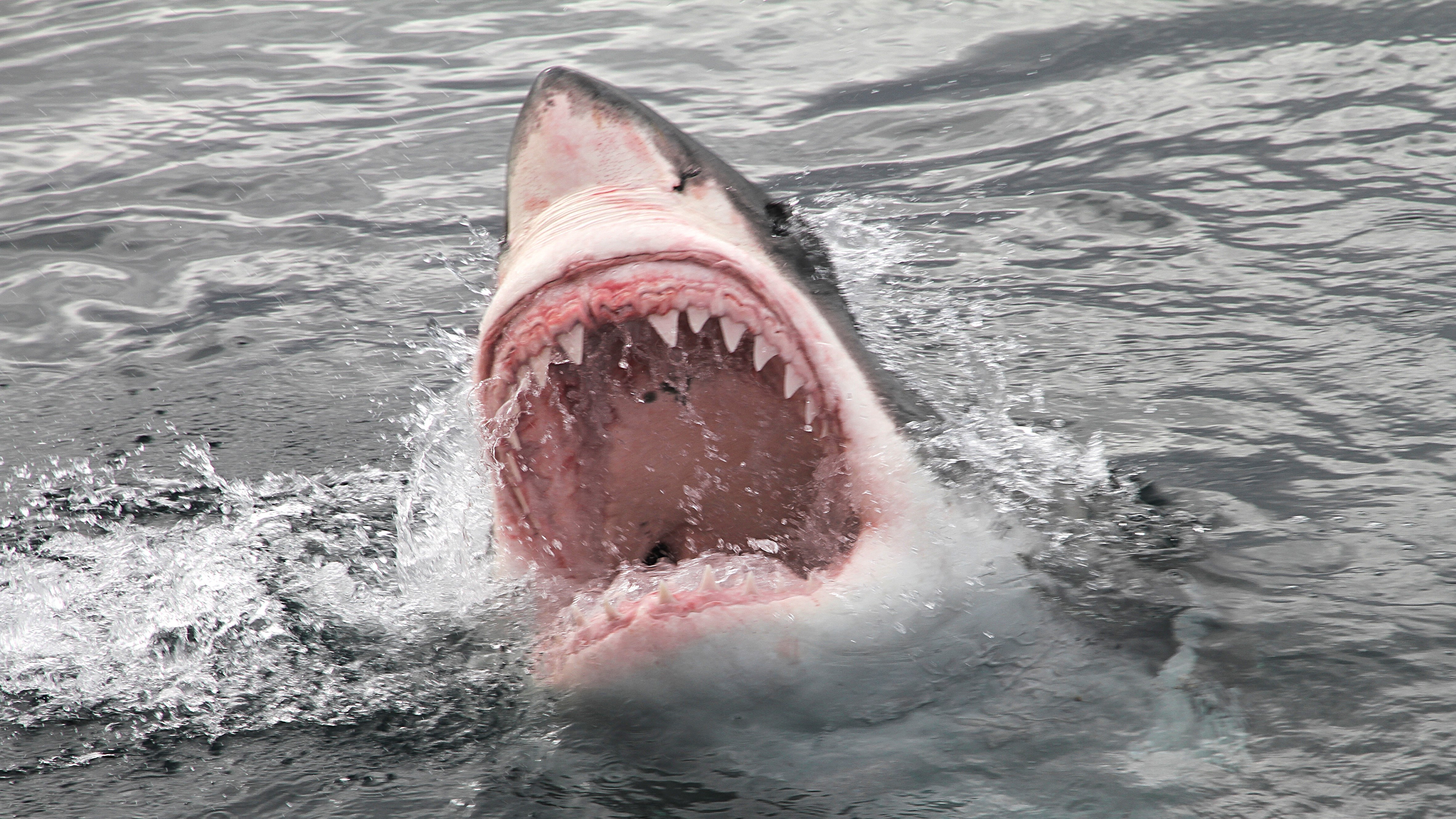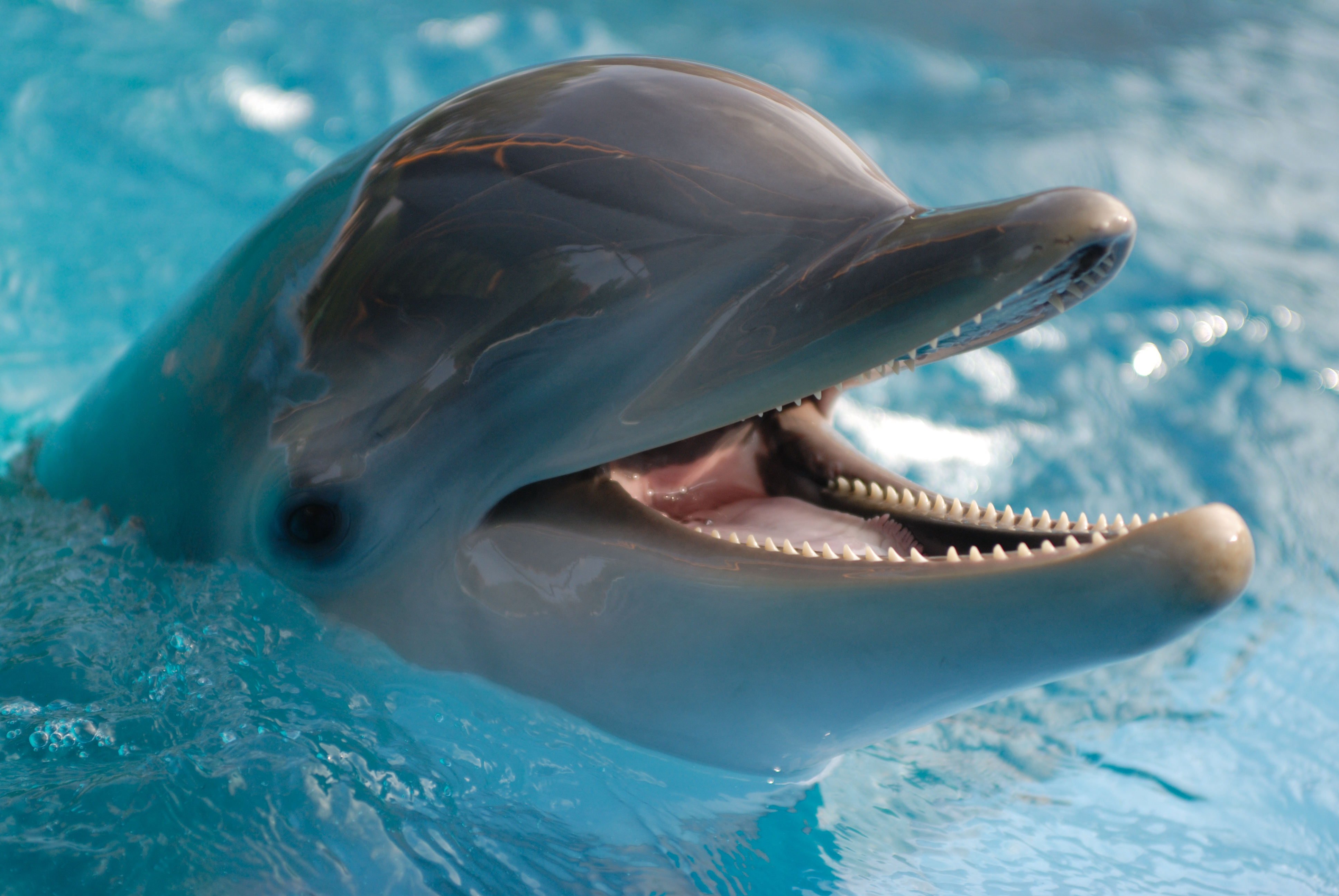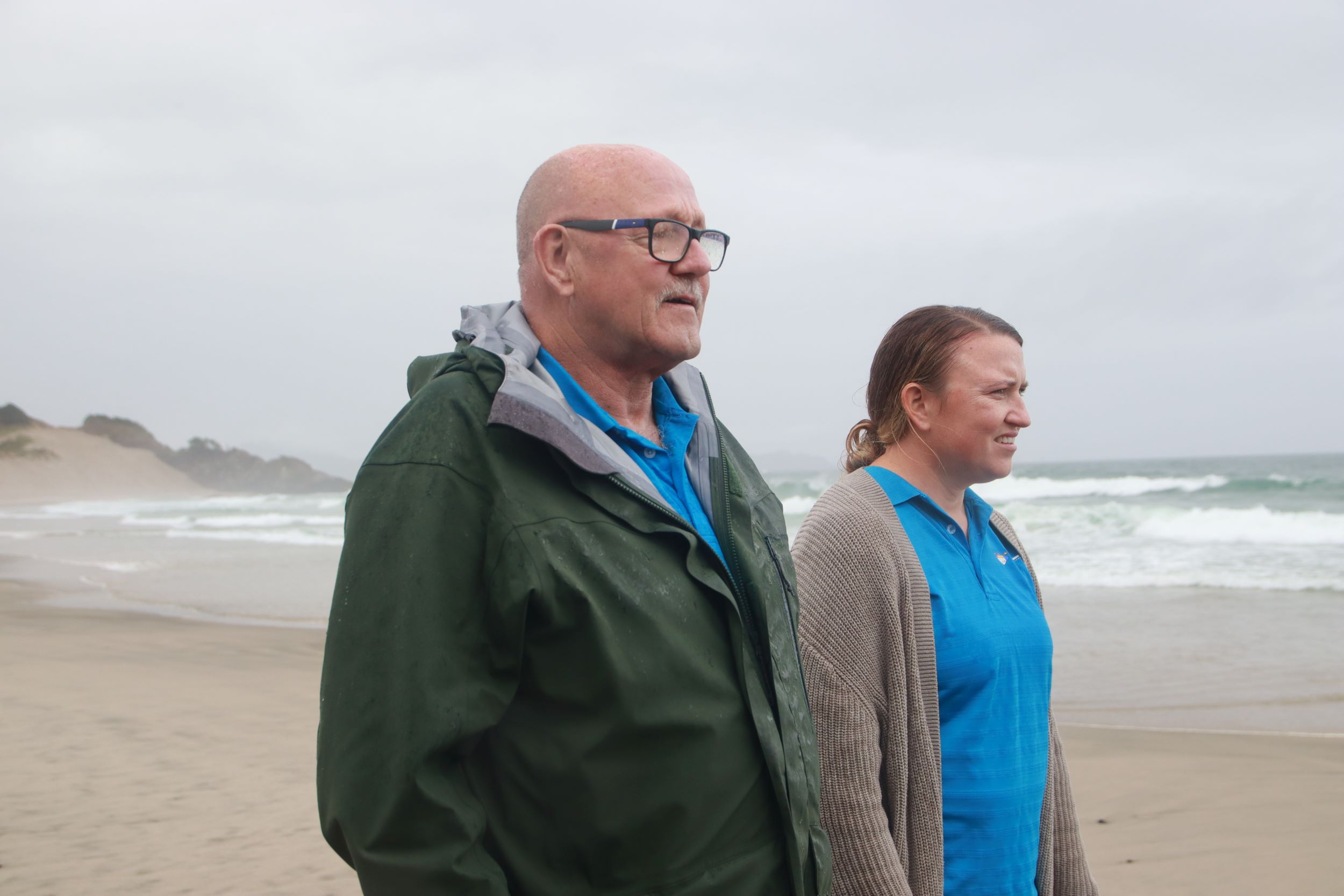'I knew it was circling me': Man attacked by shark was waiting to die, then dolphins saved his life
NatGeo Sharkfest episode focuses on stories of whales and dolphins saving people from sharks. But are they really trying to protect us?

Martin Richardson was swimming in the Red Sea in Egypt when he was attacked by a mako shark (Isurus oxyrinchus). He was bitten approximately five times and was waiting to die when something unusual happened.
"There was no reason for the shark to stop," he said in "Saved from a Shark," a new show from National Geographic. "I had lost approximately 5 pints [2.8 liters] of blood. You only have 8 to 9 [pints, or 4.5 to 5 L] in your body. I was waiting for a feeding frenzy… I knew it was circling me… I turned away and looked at the mountains. I gave up."
At this moment, a group of dolphins appeared just behind Richardson, and the attack stopped. He was then pulled onto a boat that had been racing to get to him before the shark did and rushed to hospital, where needed more than 300 stitches. "I firmly believe the dolphins saved my life," he said.
Related: Great whites are dining on other sharks instead of seals, researchers discover in NatGeo show
Do whales and dolphins really protect humans from sharks? "Saved from a Shark" — part of NatGeo's SharkFest — looks closely at four cases where people were seemingly protected from the predators in the water."Being saved by another animal is certainly a very romantic notion," Tom Hird, marine biologist and shark conservationist, said in the program.

But it's not so clear that's what's actually going on in most cases.
Mike Heithaus, professor in the department of biological sciences at Florida International University, said it's unlikely dolphins were intentionally saving Richardson's life.
Sign up for the Live Science daily newsletter now
Get the world’s most fascinating discoveries delivered straight to your inbox.
"The dolphins see a big cloud of blood, they know a shark is in the area." If they had young, they'd want to scare the shark away from the young. "They may not have been trying to save Martin," he said in the show.
In another case explored in the film, Nan Hauser, director of the Cook Islands Whale Research, revisited the moment in 2017 when a humpback whale (Megaptera novaeangliae) she was diving with saved her from a huge tiger shark (Galeocerdo cuvier) that was stalking her. In footage shot during the encounter, Hauser is approached by the whale, pushed and then lifted onto its snout.

"[The whale is] looking at me and I know he's got something to tell me," she said in the program. "I do not understand. He wants me to understand. I look down into the deep blue. And I then I see [the tiger shark] right below me.
"I know — and the whale knows — this is a serious situation and I want to get out of the water. Then all of a sudden I was swooped up by the whale… now he's got me right on the front of his face."
The footage captured shows the whale engaging in a behavior similar to what it would do to protect a calf, Heithaus said.

Howether, Heithaus said the most unusual case was when a group of lifeguards swimming off the coast of New Zealand were encircled by a group of dolphins. Unbeknownst to the group, a great white shark (Carcharodon carcharias) was stalking them. "I'm used to having dolphins swimming alongside me, but this was totally different," Rob Howes, one of the lifeguards in the water, said in the program.
One of the larger male dolphins charged towards him, and he then realized it was targeting the approaching shark. "Everything built to a big crescendo. Then everything went calm. The shark disappeared very quickly. It was bizarre."
Heithaus said in most cases, whales and dolphins are probably not protecting humans for altruistic reasons — more likely they are trying to protect themselves or their young. But with the lifeguards in New Zealand, "this is one case where it really seemed like the dolphins were protecting people," he told Live Science in an email.
"Saved From a Shark" premieres on Disney+, Hulu, and National Geographic on July 2. Check out our how to watch Shark Fest 2023 guide if you want to catch up on all the shark-centric shows dropping in July.

Hannah Osborne is the planet Earth and animals editor at Live Science. Prior to Live Science, she worked for several years at Newsweek as the science editor. Before this she was science editor at International Business Times U.K. Hannah holds a master's in journalism from Goldsmith's, University of London.









